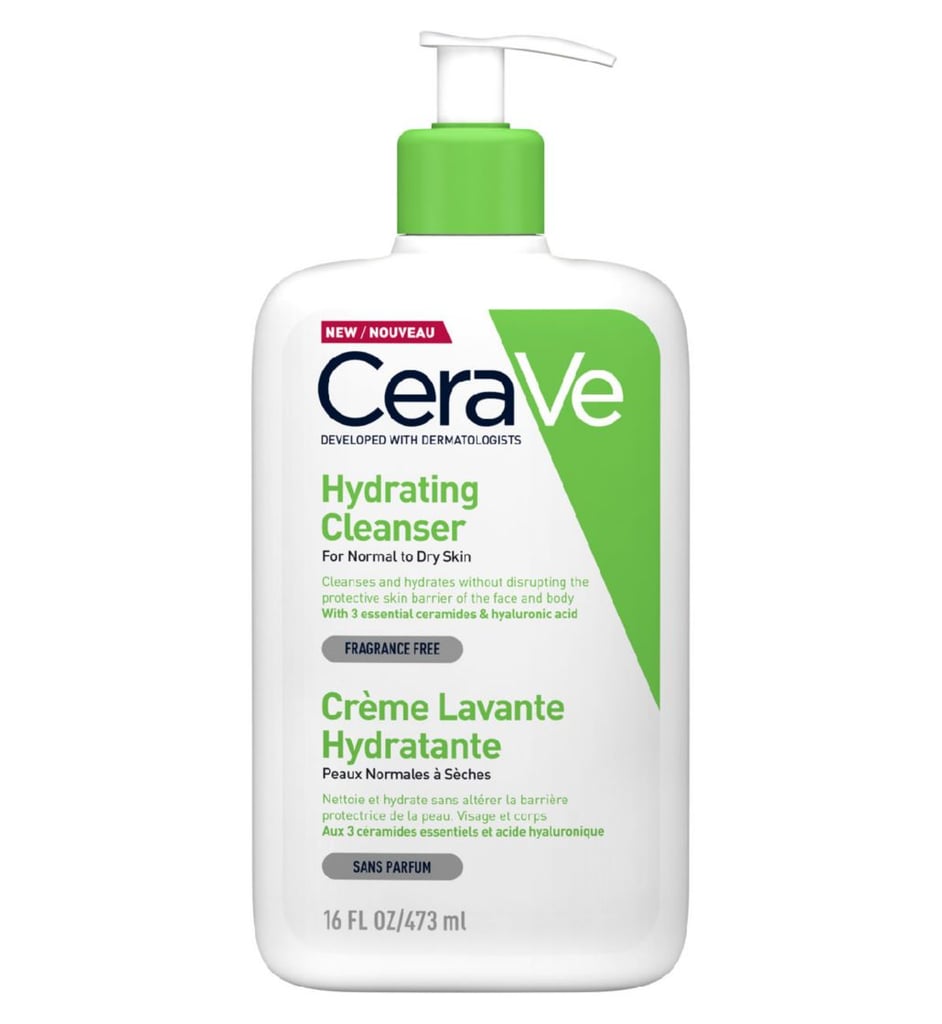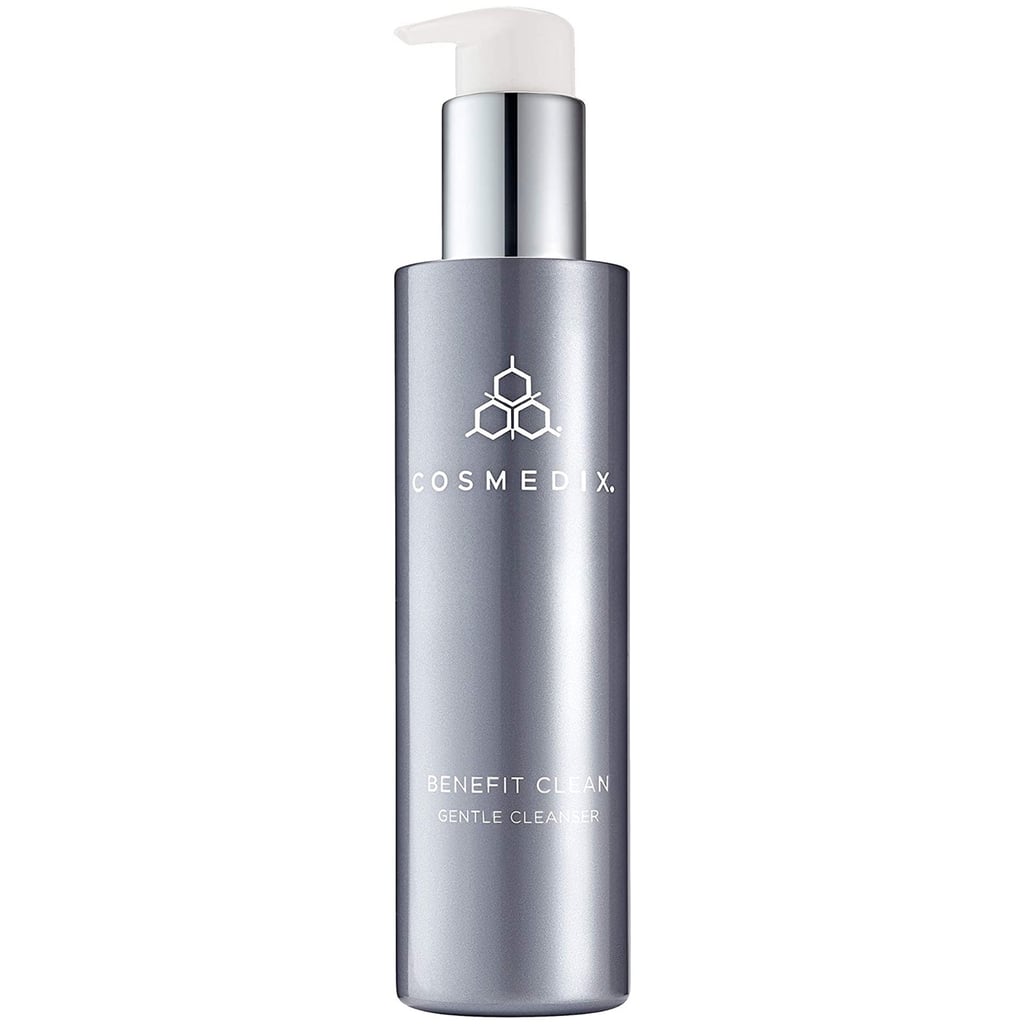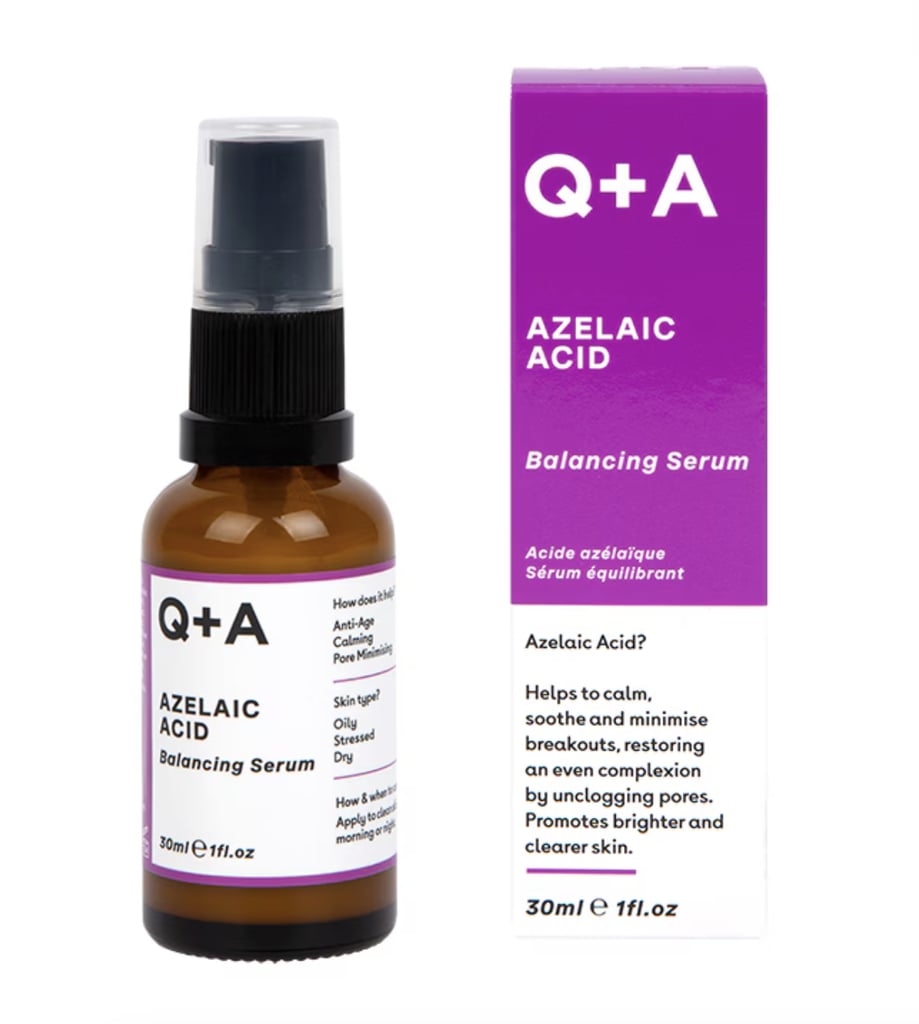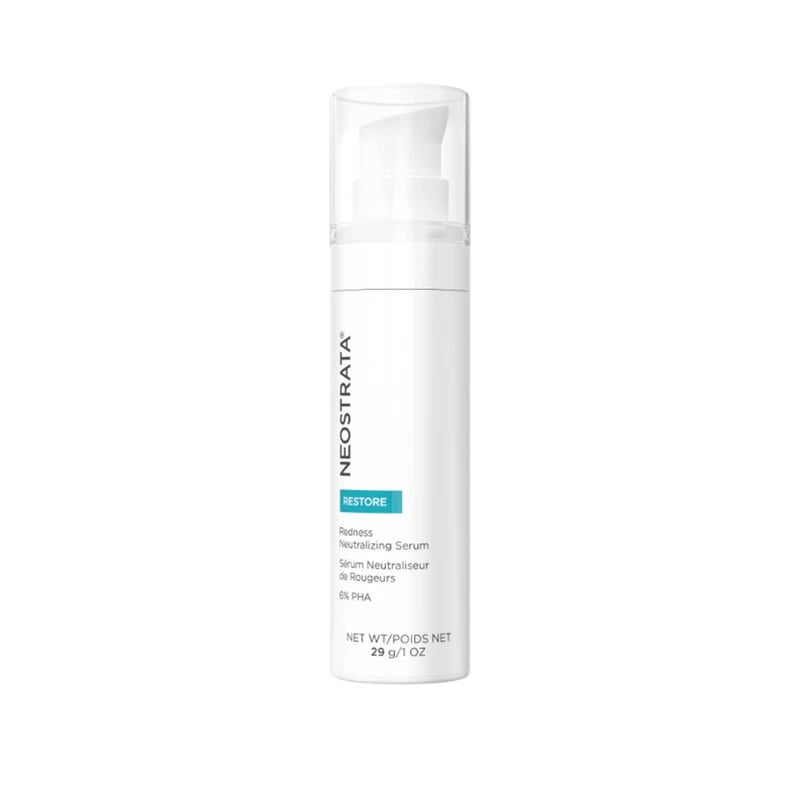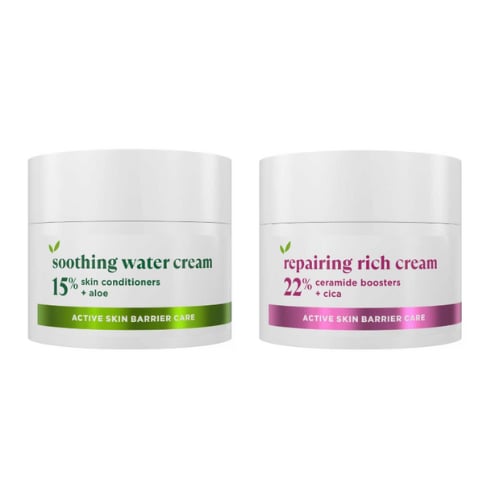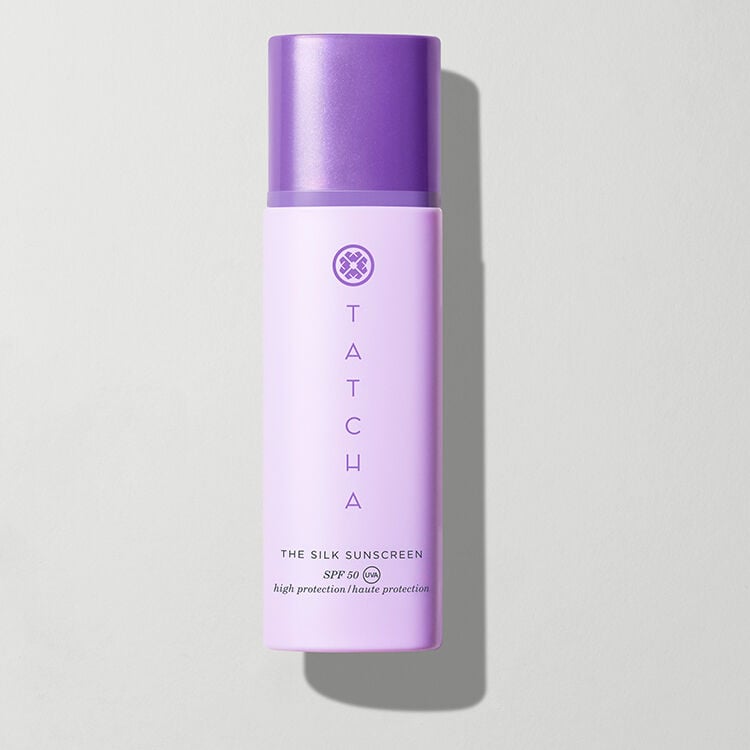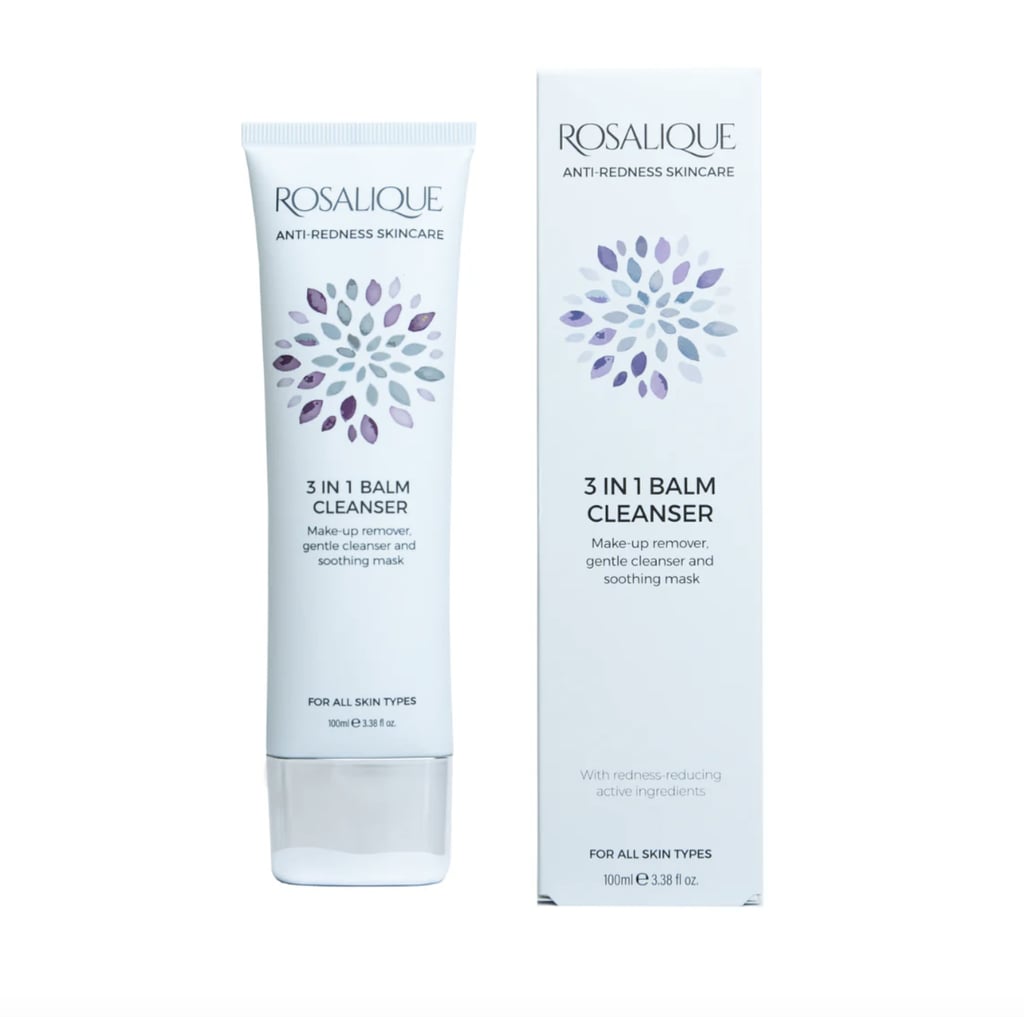Perfecting a skin care routine [1] can be pretty difficult to navigate. With so much advice flying around, and complex ingredient names to try and pronounce, and just the sheer amount of products out there, it's hard to know exactly what you're looking for. Throw having rosacea [2] into the mix, and it can make the idea of developing a skin care routine even more daunting. But with the help of top dermatologists, figuring out a basic skin care routine when you have rosacea is simpler than you might think. It's always important to go and get a diagnosis first, but if you're stuck not knowing where to turn, we've quizzed the experts on everything you need to know about a skin care routine tailored to rosacea.
What Is Rosacea?
Rosacea is a common but often misdiagnosed chronic skin inflammatory condition affecting approximately 1 in 10 people in the UK [3]. According to Dr. Alia Ahmed, psychodermatologist [4] and consultant for the NHS and GetHarley [5], rosacea is typically subdivided into the following categories: erythematotelangectatic, papulopustular [6], ocular, phymatous, granulomatous, and neurogenic, all of which can be diagnosed by a dermatologist.
Although each person experiences rosacea differently, common symptoms include: redness (often affecting the forehead, nose, cheeks, and chin), bumps and pustules, broken capillaries, flushing, a feeling of burning, facial swelling caused by inflammation, and a feeling of dryness in the skin.
In darker skin tones, where early symptoms of rosacea can sometimes be missed, look out for acne-like breakouts, burning or stinging when applying skin care products, and rather than redness, look for dusky patches of skin, as well as an overall dryness. "Seeing a professional will help you confirm the diagnosis as well as help to avoid irritation that can potentially result in long term post-inflammatory hyperpigmentation in dark skin," Dr. Amiee Vyas [7], aesthetic doctor, consultant for GetHarley [8], and co-founder of the Black Skin Advisory Board [9], told PS UK. The Black Skin Directory [10] is a great place to start when looking for experts and clinics.
What Triggers Rosacea Flare-Ups?
There are a number of common rosacea triggers to look out for, which include alcohol, extremes of temperature, sun exposure, spicy foods, exercise, and psychological factors like stress. [11]
It's not known exactly what causes rosacea, we do know that it's an "inflammatory condition associated with an impaired skin barrier and colonisation with microorganisms," explained Dr. Vyas. Although there isn't a cure for the condition, it is manageable with the correct trigger avoidances and treatment through skin care and sometimes oral medication.
How to Approach a Skin Care Routine If You Have Rosacea
When you have rosacea, tailoring your skin care routine to your specific needs can be the key to managing it. If you suspect you have rosacea or have recently been diagnosed, when it comes to a new skin care routine, Dr. Lauren Hamilton aesthetic doctor and founder of Victor & Garth [12], told PS UK that "less is more". And Dr. Vyas echoed this and recommended stripping your skin care routine right back.
The experts all agree that starting with a gentle, soothing cleanser, followed by a lightweight moisturiser, and finishing off with a mineral SPF in the morning is a great place to start. Until you have a handle on your condition, "avoid strong active ingredients (such as alpha hydroxy acids and beta hydroxy acids [13]), and products that contain alcohol or fragrance," Dr. Vyas said. "In addition to this, you can add in antimicrobial products like Clinisept+ [14] to protect from microorganisms," she added. The reason for stripping right back is to minimise as much irritation as possible that could be compromising your skin barrier further.
Ingredients You Should Look Out For If You Have Rosacea
If you're keen to look for specific ingredients in your skin care products that can help with your rosacea symptoms, a good rule of thumb is to keep an eye out for anything that's going to help restore your skin barrier function. "Ingredients such as glycerin and hyaluronic acid [15] will rehydrate your skin, whilst ceramides will lock in the moisture and help your skin barrier," said Dr. Hamilton.
Once you've settled your skin and worked on repairing your barrier, with the help of an expert, you might want to look into slightly stronger ingredients that target other rosacea symptoms. Brimonidine gel and oxymetazoline hydrochloride have been proven to help with redness, Dr. Hamilton explained. Topical azelaic acid [16] (which you can buy both with and without a prescription depending on the percentage strength) is effective for someone experiencing red or pus-filled bumps, which is present in inflammatory rosacea. Dr. Vyas agreed, adding that antioxidants [17] and poly hydroxy acids [18] can also help with gentle exfoliation since they're the least irritating of all the hydroxy acids.
Using Sunscreen Is Integral If You Have Rosacea
There's one skin care product that is an absolute must for everyone, and that's sunscreen. [19] But if you have rosacea, you'll need to stay on top of wearing it even more. Wearing a sunscreen with a minimum of SPF 30 all day, every day [20], is one of the best ways to protect your skin against sun damage as well as potential triggers for a rosacea flare-up, (since sunlight is a well known trigger of rosacea flares). "UV rays can damage blood vessels (by breaking down the supportive collagen and elastin in blood vessels) contributing to symptoms of redness and flushing associated with rosacea," explained Dr. Ahmed.
The experts generally recommend using a mineral sunscreen [21] versus a chemical one because the ingredients used in chemical formulas have a tendency to irritate sensitive skin types like those with rosacea. Ingredients in a mineral sunscreen contain zinc oxide and titanium dioxide, which tend to be better tolerated for people with sensitive skin. Dr. Sonia Khorana [22], a GP (with special interest dermatology) and cosmetic doctor in the West Midlands, also recommended using a mineral SPF if you're prone to breakouts.
What Skin Care Products Should Someone With Rosacea Potentially Avoid?
"Don't be overzealous with physical exfoliative practices (e.g. using rough face cloths or scrubs)," said Dr Ahmed. "Avoid highly fragranced products [23] as they can sometimes cause skin reactions and aggravate rosacea," she added. Once you have a better grasp on triggers you'll be able to determine whether fragrance is one for you or not. "Other changes to consider would be to use water-based makeup and oil-free moisturisers [24]," Dr. Hamilton added.
That said, whilst many dermatologists suggest products and treatments that work with rosacea, it should be noted that many of them also live by the motto (as dermatologist Ranella Hirsch said [25]): "If you're happy with your skin care, ignore what IG says." There are products that experts recommend avoiding if you have rosacea, but if you do have rosacea and find one of these products is working for you then you do you.
A Note About Prescription Products and Rosacea
Oftentimes, rosacea is treated using prescription products, however, as there are different types of rosacea, treatment for each varies vastly, with some improving with regular skin care products and others needing medical treatments such as oral antibiotics and laser treatment, Dr. Hamilton explained. If you have mild rosacea, it might be suggested to manage your symptoms first without prescription products and rather by identifying triggers and using skin care products designed to strengthen the skin barrier and reduce irritation. If you have any symptoms affecting the eyes, Dr. Vyas said that it's imperative you visit your GP, as this could be a sign of ocular rosacea.
In short: when it comes to skin care for people with rosacea, Dr. Vyas simply said, keep the routine short and sweet. And try to visit a GP or dermatologist for tailored, expert advice if you can. Shop some dermatologist-recommend skin care products for rosacea ahead.
— Additional reporting by Lauren Gordon
Tori Crowther [26] is a freelance beauty journalist and former PS UK editor.
Lauren Gordon [27] is the editorial coordinator at PS UK, where she creates lifestyle and identity content. Lauren has a degree in journalism from University of the Arts London and previously worked as a showbiz and TV reporter at The Mirror US. Lauren specialises in pop culture, hair and beauty, focusing on trends, sharing in-depth tutorials, and highlighting hidden gems in the beauty industry.
